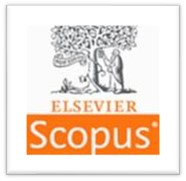Document Type
Article
DOI
10.71071/JAM/v11i2.1.12th
Department
School of Nursing and Midwifery, Pakistan
Abstract
Pakistan is a developing country, with 65% of the population residing in rural areas. The rural population is considered vulnerable mainly due to several factors, including poverty. Climate change and the area's topography limit their access to basic human needs such as basic healthcare, affecting their quality of life. Most people lack basic information about the location and availability of healthcare facilities, including hospitals, diagnostic centres, pharmacies, and general clinics. Hence, the rural healthcare system lacks primary care physicians, nurses, midwives and allied health professionals. Inappropriate infrastructure makes it challenging to retain qualified professionals. A non-profit and non-governmental entity aims to foster healthy communities in its catchment population by providing quality healthcare through effective and integrated health service delivery systems. This organization offers services ranging from primary health care to diagnostic and curative care. Working in partnership with local communities, the government, and other institutions, the goal has been to discover sustainable financing methods and deliver primary health care in high-mountain valleys such as the Northern part of Pakistan, thereby achieving the SDG.
The scope of this proposal focuses on following critical gaps in the health care system. Inconsistency in referral practices from community to Basic Health Centers (BHCs) and from BHCs to Community Health Centers (CHCs). There is a lack of efficient and standardized local health information systems at the primary, secondary and tertiary care levels, due to which inconsistencies may arise in the data gathered, preventing the possibility of interdisciplinary care provision. The lack of health records adversely affects the capacity to monitor health trends, handle chronic conditions, and proactively manage public health endeavors. Health Information Technology (HIT) can assist healthcare professionals in improving clinical decision-making by providing integrated healthcare based on the objectivity of the data. This proposal aims to employ HIT to help healthcare professionals make informed decisions by utilizing information technology to inform their choices for providing relevant healthcare to clients and patients.
This proposal is a collaborative effort, calling for action to provide need-based health care. Based on the success of this project, Low-Middle Income countries (LMICs) may adopt similar strategies, strengthening their healthcare systems through HIT.
Recommended Citation
Gulzar, S A, Gulzar, A A, Faheem, Z A, Arif, A, & Sarfaraz, A. Improve the referral system of health care organizations in rural community settings of Pakistan using Health Information Technology (HIT) - A protocol. Journal of Asian Midwives. 2024;11(2):123–132.



